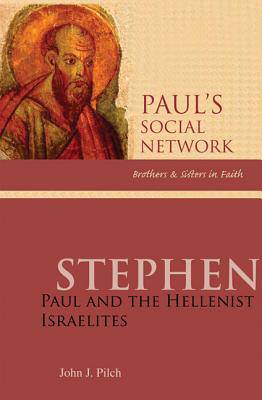
- Retrait gratuit dans votre magasin Club
- 7.000.000 titres dans notre catalogue
- Payer en toute sécurité
- Toujours un magasin près de chez vous
- Retrait gratuit dans votre magasin Club
- 7.000.0000 titres dans notre catalogue
- Payer en toute sécurité
- Toujours un magasin près de chez vous
Description
It is difficult to appreciate how Stephen qualifies as a friend of someone who attended and approved of his murder (Acts 7:58; 22:20). Yet Stephen belonged to the very group of Israelites to whom Paul later brought the Good News: the Hellenists. These Israelites lived mainly outside of Paulestine, thoroughly acculturated in the Greek language and culture of their habitat, and they practiced their traditions in a very modified way. These modifications created great difficulty for Stephen and other Hellenists who resumed residence in Jerusalem, as we read in Acts 6-7. In this account we learn who Stephen was, what he said, and how he died - -all things that made a huge impression on Paul. That experience set the stage for Paul's commissioning by the risen Jesus to evangelize Hellenists (Acts 9). In Stephen: Paul and the Hellenist Israelites, John J. Pilch reflects on Stephen as a Hellenist Israelite, a collectivistic person, a deacon (the word does not appear in Acts), and one who true to his tradition communicates with the world of God in alternate states of consciousness. Paul has much in common with Stephen, so to know Stephen is to gain a better understanding of Paul.
Spécifications
Parties prenantes
- Auteur(s) :
- Editeur:
Contenu
- Nombre de pages :
- 112
- Langue:
- Anglais
- Collection :
Caractéristiques
- EAN:
- 9780814652299
- Date de parution :
- 01-02-08
- Format:
- Livre broché
- Format numérique:
- Trade paperback (VS)
- Dimensions :
- 145 mm x 211 mm
- Poids :
- 131 g

Les avis
Nous publions uniquement les avis qui respectent les conditions requises. Consultez nos conditions pour les avis.






